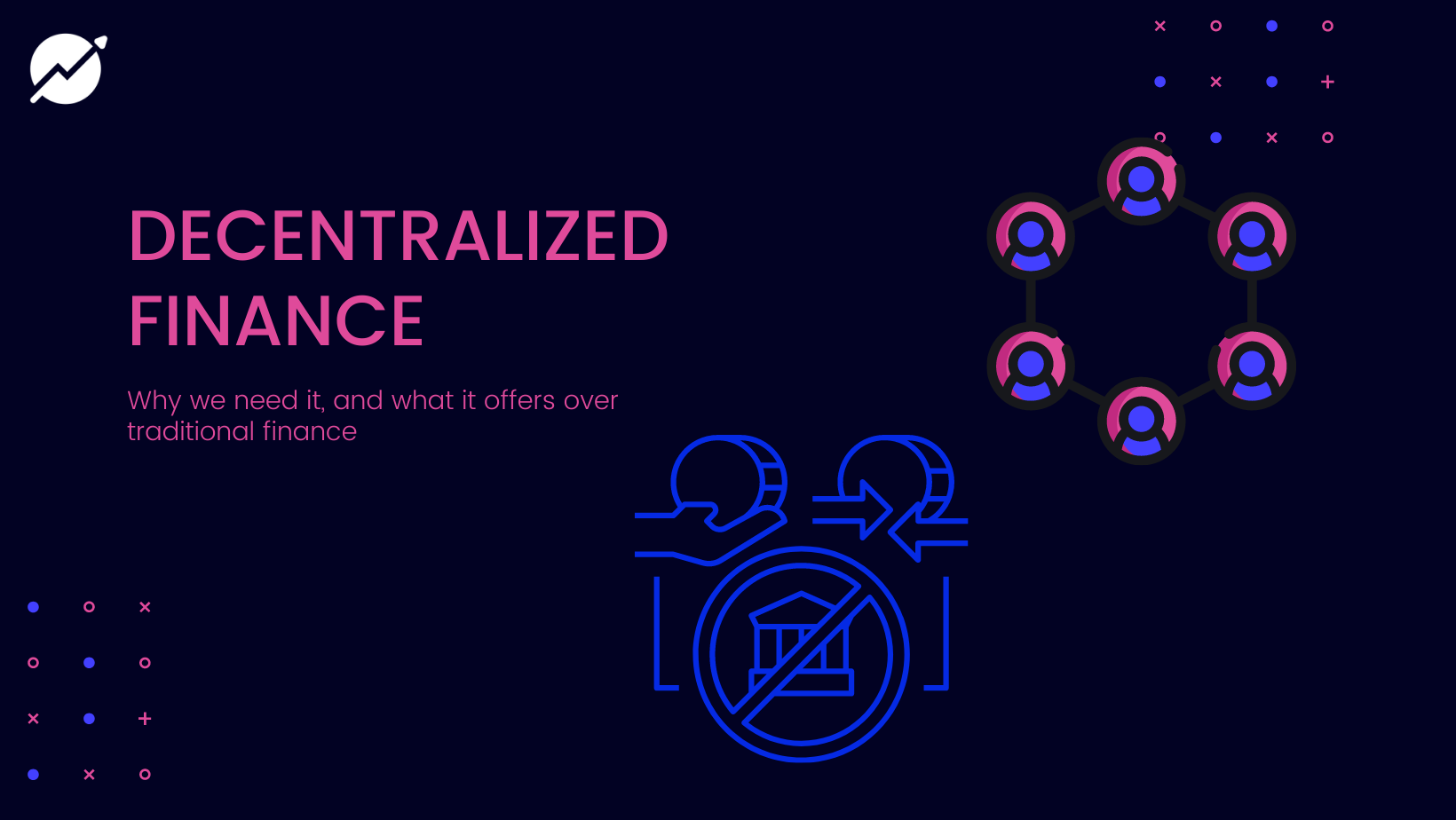
DeFi: Why Do We Need It?
DeFi, or decentralized finance, represents fiscal autonomy. Our current financial systems are permissioned, expensive, and slow. DeFi allows for censorship resistant, permissionless, cheap, and quick versions of all the financial tools and concepts you already know and use such as currency, exchanges, money transfers, borrowing&lending, brokerages, and more.
Let’s say you want to send money from your bank in the US to a cousin in Mexico; this should take a few business days and will incur a fee of potentially 10% (using Western Union as an example). Let’s go a step further and pretend the US isn’t on good political terms with Mexico, maybe they won’t allow you to send money to your cousin at all. Ultimately, you’re at the mercy of several centralized entities (governments, banks, regulatory agencies) to act as you wish with your own money.
Why it must be permissionless:
When you deposit $100 in your bank, you no longer have $100; you have an IOU for $100. This is an important distinction.
Any bank can decide to freeze your funds for any reason. If your bank, or even your country, doesn't approve of a certain social movement or religion, you don't want to be caught financially involved with the cause; those of you in a democratic country might think this is a hypothetical, but it's a very real issue for our fellow people living under authoritarian governments.
Oh, and it's not unprecedented in democratic countries either; in 2022 the Canadian government froze the bank accounts of any citizens that donated to a specific non-profit that they didn’t like. In 2022, popular banks in the US are still known to freeze bank accounts of users that buy cryptocurrency. In the age where most of our money is digital (credit cards, bank accounts, using ATMs for your cash), financial sovereignty is necessary.
In a decentralized financial system, no government or company can lock you out, freeze funds, or decide how you can spend your money.
What the hidden cost of centralized finance is:
Bank of America gives you about 0.01% APY on your savings account with them (so does every other major bank). They take that same money and lend it out to borrowers for a rate that is 100x or more, keeping the profits. What if you could lend your money directly to borrowers, without any risk of not being paid back? You can place your trust in code, rather than a centralized entity - and code doesn’t need to take a fee to keep the lights on in their offices. Decentralized finance allows you to cut out the middleman, and save money in the process. Traditional finance is full of middlemen. Even your central bank is a middleman.
How much faster it can be:
Blockchains allow for funds to be transferred across multiple countries and back in minutes. Different networks have different lengths of time for transactions to be confirmed, but it generally ranges from instant (<.1 seconds) up to ~10 minutes for confirmation. This is much faster than the 3-5 business days that many financial institutions require to give you your money. In DeFi you don't have to worry about a transfer over the weekend, or bank holidays, or being outside of business hours.
Decentralized finance is all about regaining autonomy of your money. Physical cash is indeed being phased out of our day-to-day lives, and we're far past using gold or precious metals as a practical currency in our globalized world. Censorship-resistant, permissionless, fungible money is the only true form of money.

